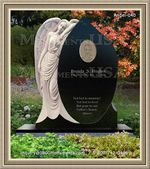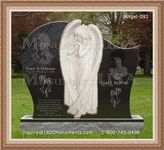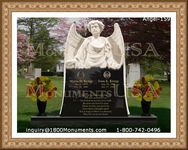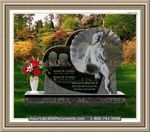|
Basics To Know When Composing A Memorial Epitaph
When making final arrangements for someone who has passed away, there are a lot of details that require attention. These duties generally fall to family members of the deceased and may be handled by a single person, or the responsibilities may be distributed to make it easier. One such task is writing an appropriate epitaph for the gravestone.
This means that they will create a short sentiment, statement, poem, verse or phrase that will be engraved on the headstone as a lasting testament. The purpose is to give others a brief glance into the individual it represents. These inscriptions take many forms, usually depending on the personality and what the individual's life was like or the emotional state of the writer.
Nearly every grave marker starts out with the same basic identifying information. They state with the deceased's name and the date of their birth followed by when they passed away. Some people choose to stop there, but many opt to include additional statements, sentiments or facts that either describe the individual, or speak to their life or personality.
Traditionally, these inscriptions are short, touching sentiments stating what the individual meant to those who loved them or wishing them a peaceful rest. Sometimes they attest to what a loving spouse, parent, child or sibling they were, or mention their time in military service. Another popular choice is to use their favorite religious scripture.
A growing number of people are making the choice to write their own goodbyes. By doing so they are able to express themselves more accurately and use a bit of creativity if desired. People with an elevated sense of humor find this to be the perfect opportunity to leave people smiling one last time.
Those who write their own might also like to use this as a platform to impart a last bit of wise advice to others. Often this involves encouraging people to be happy and live life well. One can be as creative as they wish with their final statement.
|
|



























